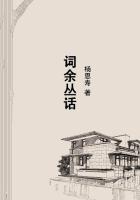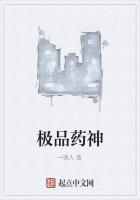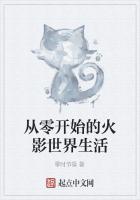At her bedroom door, the next morning, stood Lady Isabel, listening whether the coast was clear ere she descended to the gray parlor, for she had a shrinking dread of encountering Mr. Carlyle. When he was glancing narrowly at her face the previous evening she had felt the gaze, and it impressed upon her the dread of his recognition. Not only that; he was the husband of another; therefore it was not expedient that she should see too much of him, for he was far dearer to her than he had ever been.
Almost at the same moment there burst out of a remote room--the nursery--an upright, fair, noble boy, of some five years old, who began careering along on the corridor, astride upon a hearth-broom.
She did not need to be told it was her boy, Archibald; his likeness to Mr. Carlyle would have proclaimed it, even if her heart had not. In an impulse of unrestrainable tenderness, she seized the child, as he was galloping past her, and carried him into her room, broom and all.
"You must let me make acquaintance with you," she said to him by way of excuse. "I love little boys."
Love! Down she sat upon a low chair, the child held upon her lap, kissing him passionately, and the tears raining from her eyes. She could not have helped the tears had it been to save her life; she could as little have helped the kisses. Lifting her eyes, there stood Wilson, who had entered without ceremony. A sick feeling came over Lady Isabel: she felt as if she had betrayed herself. All that could be done now, was to make the best of it; to offer some lame excuse.
What possessed her thus to forget herself?
"He did so put me in remembrance of my own children," she said to Wilson, gulping down her emotion, and hiding her tears in the best manner she could; whilst the astonished Archibald, released now, stood with his finger in his mouth and stared at her spectacles, his great blue eyes opened to their utmost width. "When we have lost children of our own, we are apt to love fondly all we come near."
Wilson, who stared only in a less degree than Archie, for she deemed the new governess had gone suddenly mad, gave some voluble assent, and turned her attention upon Archie.
"You naughty young monkey! How dare you rush out in that way with Sarah's heart-broom? I'll tell you what it is, sir, you are getting a might deal too owdacious and rumbustical for the nursery. I shall speak to your mamma about it."
She seized hold of the child and shook him. Lady Isabel started forward, her hands up, her voice one of painful entreaty.
"Oh, don't, don't beat him! I cannot see him beaten."
"Beaten!" echoed Wilson; "if he got a good beating it would be all the better for him; but it's what he never does get. A little shake, or a tap, is all I must give; and it's not half enough. You wouldn't believe the sturdy impudence of that boy, madame; he runs riot, he does. The other two never gave a quarter of the trouble. Come along, you figure! I'll have a bolt put at the top of the nursery door; and if I did, he'd be for climbing up the door-post to get at it."
The last sentence Wilson delivered to the governess, as she jerked Archie out of the room, along the passage, and into the nursery. Lady Isabel sat down with a wrung heart, a chafed spirit. Her own child!
And she might not say to the servant, you shall not beat him.
She descended to the gray parlor. The two older children and breakfast were waiting; Joyce quitted the room when she entered it.
A graceful girl of eight years old, a fragile boy a year younger, both bearing her once lovely features--her once bright and delicate complexion--her large, soft brown eyes. How utterly her heart yearned to them; but there must be no scene like there had just been above.
Nevertheless she stooped and kissed them both--one kiss each of impassioned fervor. Lucy was naturally silent, William somewhat talkative.
"You are our new governess," said he.
"Yes. We must be good friends."
"Why not!" said the boy. "We were good friends with Miss Manning. I am to go into Latin soon--as soon as my cough's gone. Do you know Latin?"
"No--not to teach it," she said, studiously avoiding all endearing epithets.
"Papa said you would be almost sure not to know Latin, for that ladies rarely did. He said he should send up Mr. Kane to teach me."
"Mr. Kane?" repeated Lady Isabel, the name striking upon her memory.
"Mr. Kane, the music-master?"
"How did you know he was a music-master?" cried shrewd William. And Lady Isabel felt the red blood flush to her face at the unlucky admission she had made. It flushed deeper at her own falsehood, as she muttered some evasive words about hearing of him from Mrs. Latimer.
"Yes, he is a music-master; but he does not get much money at it, and he teaches the classics as well. He has come up to teach us music since Miss Manning left; mamma said that we ought not to lose our lessons."
Mamma! How the word, applied to Barbara, grated on her ear.
"Whom does he teach?" she asked.
"Us two," replied William, pointing to his sister and himself.
"Do you always take bread and milk?" she inquired, perceiving that to be what they were eating.
"We get tired of it sometimes and then we have milk and water, and bread and butter, or honey; and then we take to bread and milk again.
It's Aunt Cornelia who thinks we should eat bread and milk for breakfast. She says papa never had anything else when he was a boy."
Lucy looked up.
"Papa would give me an egg when I breakfasted with him," cried she, "and Aunt Cornelia said it was not good for me, but papa gave it to me all the same. I always had breakfast with him then."
"And why do you not now?" asked Lady Isabel.
"I don't know. I have not since mamma came."
The word "stepmother" rose up rebelliously in the heart of Lady Isabel. Was Mrs. Carlyle putting away the children from their father?
Breakfast over, she gathered them to her, asking them various questions about their studies, their hours of recreation, the daily routine of their lives.
"This is not the schoolroom, you know," cried William, when she made some inquiry as to their books.
"No?"















